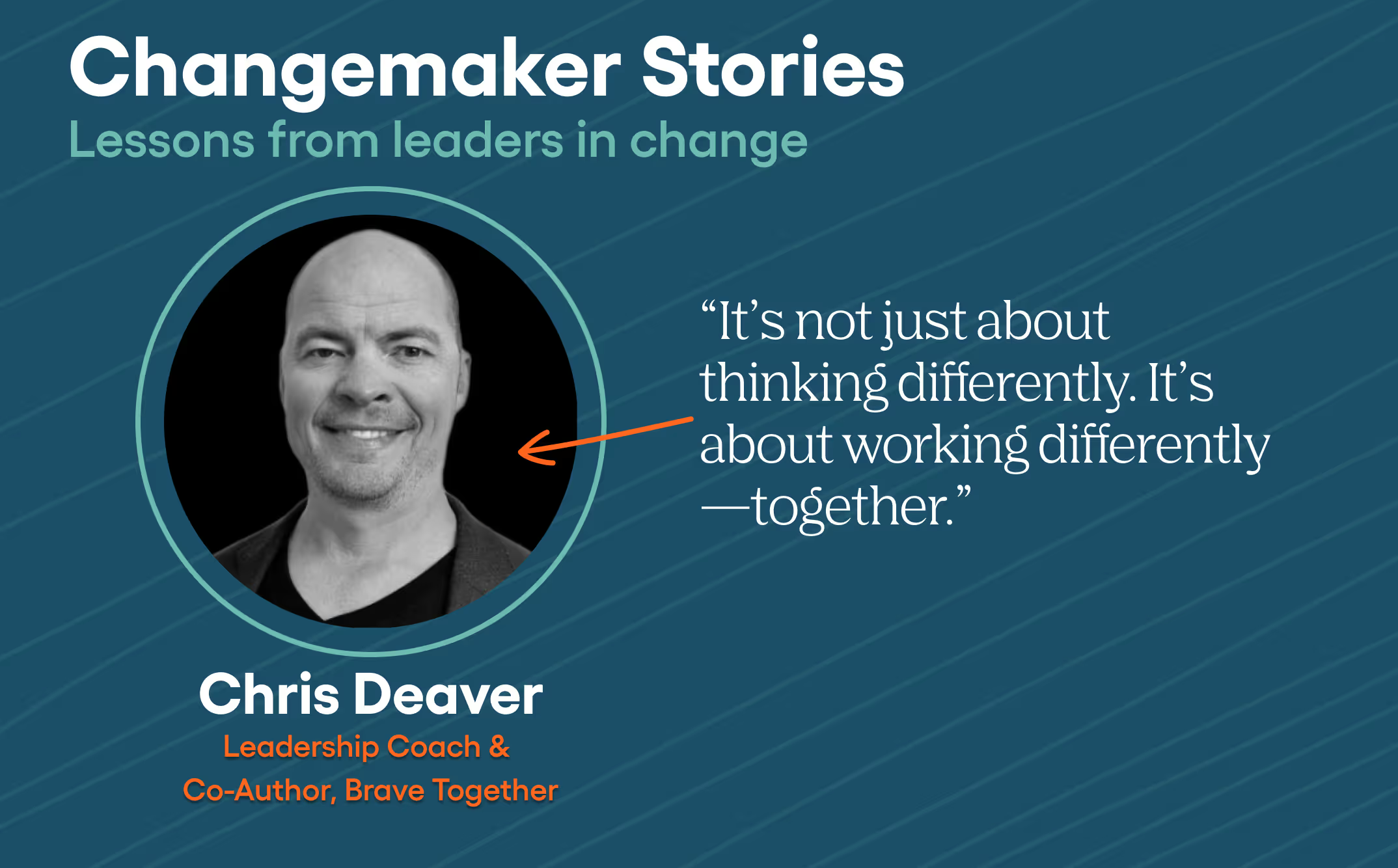

Welcome to Changemaker Stories from LOCAL – an ongoing series of personal interviews with leaders driving change across every industry and discipline. Because change shouldn’t mean going it alone.
Chris Deaver has spent his career inside some of the most iconic brands in the world—Apple, Disney, Pixar—not just helping them build great products, but helping them build great cultures. As a leadership coach and co-author of Brave Together, he champions a new way of leading rooted in co-creation, first-principles thinking, and working “differently together.”
From shaping Apple’s internal culture behind AirPods to mentoring teams on how to collaborate across silos, Chris has seen firsthand that innovation doesn’t just come from great ideas—it comes from how people bring those ideas to life. His work isn’t about top-down transformation. It’s about unlocking shared ownership, designing culture as deliberately as product, and turning everyday teams into world-class collaborators.
The most innovative companies aren’t just product-driven. They’re culture-driven. We treat culture like it’s soft, but in reality, it’s infrastructure. At Apple, when I was brought in to help new employees internalize the culture, the initial question was: “How do we teach them what Apple is?” But the real question we needed to ask was: “What is Apple becoming?” Culture isn’t a historical artifact. It’s a story about the future—and your people should help write it.
If innovation is the engine, story is the fuel. Storytelling was how we moved teams at Apple. Not marketing stories—internal ones. When we launched AirPods, the real breakthrough wasn’t technical. It was cultural. The engineering, design, and antenna teams were siloed and burned out, clashing in brutal 6-hour daily meetings. We borrowed the “brain trust” model from Pixar and restructured the collaboration rhythm. One to two hours a week. Cross-functional. Egos off the table. That changed everything.
We shifted from ‘thinking differently’ to ‘working differently together.’ That meant giving people permission to be open. Engineers didn’t just ship code—they shared back-of-the-napkin thinking. Senior leaders acted like coaches, not gatekeepers. We even created an internal set of principles and a physical artifact to go with it. One of my favorites? Be biased toward others’ ideas. That line ended up on badges across teams—and in the hands of the leader behind Apple’s camera team as he stood in front of 250 execs and said, “This is the future.”
“The future of leadership isn't about having all the answers. It's about asking the right questions—and inviting others into them."
The best teams don’t obsess over the scoreboard. They focus on the reps. Business leaders get stuck when they chase outcomes and ignore the input: culture. Like in sports, the great coaches don’t scream about winning. They drill the fundamentals. They build trust, fitness, rhythm. John Wooden didn’t even believe in focusing on wins. He believed in developing good people—and greatness followed.
If you want culture to evolve, treat it like a product. Design it. Pressure test it. Iterate. At Apple, I wrote a 30-page manifesto that ultimately influenced a full cultural anthem video. We didn’t roll it out top-down. We gave it to the culture-bearers—the people others were already listening to. Not to control them, but to give them a shared language. Because that’s how real change spreads: not through mandates, but through momentum.
The next evolution of leadership is co-creation. That’s what our book Brave Together is about. We believe the future belongs to leaders who ask questions, who bias toward inclusion, who stop braving it alone and start braving it together. The shift isn’t just from fear to courage—it’s from “I’ve got this” to “We’ve got this”. Because in a world of AI, volatility, and rapid change, the organizations that win won’t be the ones with the smartest individual. They’ll be the ones with the strongest team.